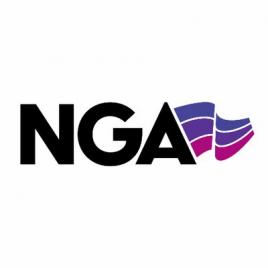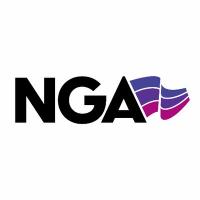NGA Co-Chairs Seek Support from New FEMA Head on Public Assistance

“Hello! Welcome! Now here are our concerns.”
The previous sentence could be used as the synopsis for a letter the co-chairs of the National Governors Association (NGA) sent last week to the new head of the Federal Emergency Management Agency (FEMA). NGA Co-chairs Ned Lamont, governor of Connecticut, and Bill Lee, governor of Tennessee, told FEMA’s recently sworn-in Administrator Deanne Criswell about the shared responsibility for emergency management between federal, territorial, state and local officials, and that the COVID-19 pandemic “illustrated the need for clear, consistent and transparent communication at all levels of government."
However, they stressed that they have been challenged by FEMA’s Public Assistance (PA) guidance, noting that PA recipients have received inconsistent messages across FEMA regions as to what pandemic response items were eligible for reimbursement. They added that the Trump administration opted for a more restrictive policy, designating some otherwise eligible costs as “increased operating costs” rather than emergency protective measures, thereby causing greater confusion, frustration and concern among PA recipients. NGA deemed this approach inappropriate given the continuation of both the public health emergency declaration and the major disaster declarations. While the Biden administration made some of these costs eligible starting Jan. 20, 2021, NGA explained that its request for a retroactive, across-the-board 100% federal cost share has not been met.
NGA also added that several changes to FEMA policy guidance since the start of the pandemic resulted in three different eligibility requirements based on arbitrary dates, creating even more confusion. The association offered the following recommendations for FEMA to address its PA concerns:
- work with governors to simplify and provide full flexibility for COVID-19 public assistance eligibility requirements and, at minimum, repeal the policy guidance from September 2020;
- improve coordination at the headquarters level regarding the communication of policy changes and decisions that are disseminated by the FEMA regions to ensure consistency of the message nationwide;
- limit reporting mandates that are retroactive in nature, as most states and territories do not have the capacity to change during their response, or do not have the infrastructure to go back and collect data on early applicants;
- authorize the use of the Hazard Mitigation Grant program under the COVID-19 major disaster declaration;
- pause any rulemaking that would change the disaster declaration process and the PA program;
- avoid widespread changes to preparedness grant programs, including the Emergency Management Performance Grant and the Homeland Security Grant programs without coordinating with governors and their emergency managers first; and
- engage early and often with key state, territorial and local stakeholders (e.g., emergency managers) to ensure FEMA fully understands the impact of new or changing policies.
Hopefully, all parties can work together to help the PA program provide needed assistance most productively.
Join us for our following Thompson Grants event:
Virtual Workshop: Internal Controls - What They Are and How to Ensure Compliance | June 30, 2021
Federal Grants Forum For Institutions of Higher Education | July 21 - 22, 2021



